Having led the national athletics team for 16 years, Mr. Duong Duc Thuy believes that subjectivity, scattered competitions and lack of professionalism caused Vietnamese athletics to decline at the 19th Asiad.
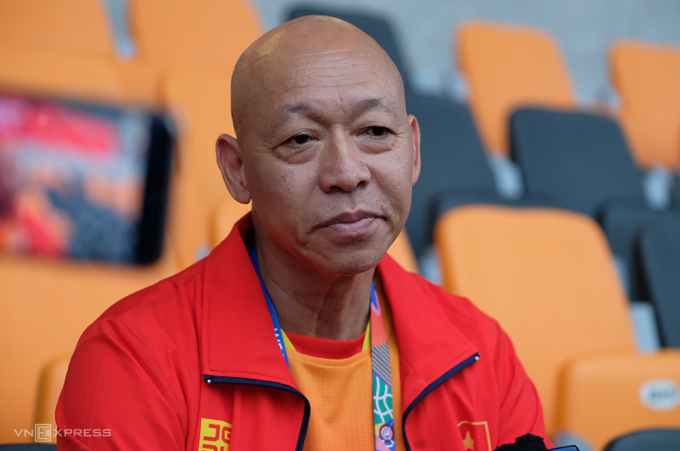
Mr. Thuy is the former head coach of the Vietnam athletics team (Department of High Performance Sports I, Department of Physical Training and Sports). Photo: Nam Anh
- One of the low points for Vietnam at the 19th Asian Games was probably athletics, when we did not win any medals. This is in contrast to the 18th Asian Games, where we won one gold, two silver and three bronze medals. How do you evaluate this failure?
- I was shocked because I did not expect the achievements of Vietnamese athletics to decline so much. We used to have a good foundation but then we were fragmented and subjective. We kept talking about the difficulties but did not point out the causes, did not find a solution and then went downhill.
- Vietnam had high hopes for the women's 4x400m event, as the reigning Asian champions. However, this event also failed. What do you think is the reason?
- Actually, the athletes have improved when they finished after 3 minutes 31 seconds 61, better than when they won the Asian championship (3 minutes 32 seconds 36). However, we faced very strong opponents. There were no Japan and China, but there were Bahrain, Sri Lanka and India... We still had the same personnel and tactics, but the opponents were too strong. The Bahrain team finished first with 3 minutes 27 seconds 67, while Vietnam had never run 3 minutes 30.
In my opinion, the two young Vietnamese athletes are somewhat psychologically affected. I also have some concerns about Nguyen Thi Huyen. Obviously, she has no chance of competing in the 400m hurdles, but the coaching board still let her run. Don't talk about learning and competing. Asiad is an arena, to do a mission. If there is no opportunity, then we should focus on the main event of the women's 4x400m. That way, maybe it will be better. We lost to Sri Lanka by less than a second, we could have completely competed for the bronze medal if we had calculated more carefully.
- What about Nguyen Thi Oanh?
- I also disagree with the coaching board about Nguyen Thi Oanh's case. She had to participate in too many distances, too many tournaments. The SEA Games is a political task, there is no need to discuss competing. But the Asian tournament after that also tested her ability in many distances. I talked to Oanh's coach, saying that winning a SEA Games gold medal is really within this athlete's reach, from the 1,500m, 3,000m steeplechase and 10,000m events, even if there were a shortage of people, Oanh could still win the 800m gold medal. But it must be recognized that at the Asian level, it is impossible to spread out like that. I told them that if you want to win a continental medal, you should choose the 3,000m steeplechase. To compete in the continent, you have to be good, choose the distance with the best chance, and train well. If you compete too much, it is easy to be worn out.
- Vietnamese athletics ranked first at SEA Games 31, second at SEA Games 32, but lost to other Southeast Asian countries at Asiad 19. What do you think is the reason?
- That is also a lesson for us to see that we should not only look at the number of SEA Games gold medals and then evaluate. We won the SEA Games gold medals but our achievements have not met Olympic standards, not equal to the achievements that can win an Asiad medal.
Previously, Vu Thi Huong and Nguyen Thi Huyen won gold medals at the SEA Games but met Olympic standards and were on par with continental medals. The same goes for Singaporean athlete Veronica Shanti Pereira. Those medals are very different. People call the SEA Games "village pond". I don't care what they call it, and my point of view is that it must be maintained because if athletes want to reach the continental level, they still have to go through this "fire furnace". But we must frankly admit that athletics in some countries in the region is no longer in the lowlands, but has begun to "climb the shore".
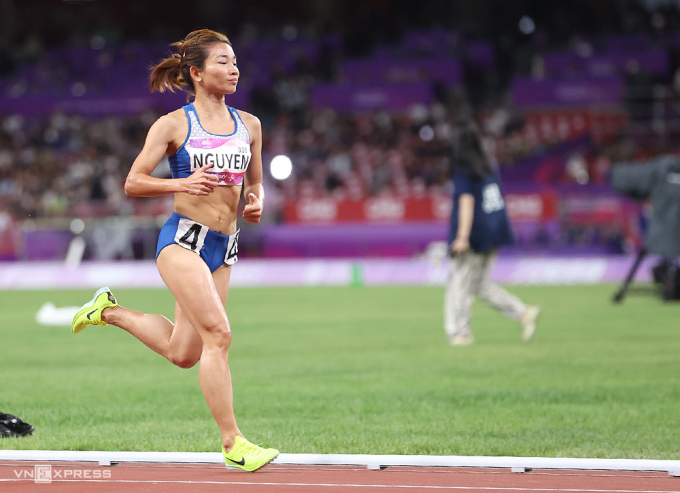
Nguyen Thi Oanh finished second to last in the 3,000m steeplechase at the 19th Asiad. Photo: Linh Huynh
- According to you, what is the reason why Vietnamese athletics is falling behind like it is now?
- Vietnam is playing alone. The investment strategy of other countries in athletics has been "unleashed", the federations have had full authority for a long time, while we are still managed by the state. The result is poor facilities. I am in Singapore. The athletics field of the secondary school here is equal to that of our provinces. The high schools have eight running lanes, and places for hammer throwing, discus throwing... Next to that is a gym, where there are always instructors, not random practice. In Vietnam, even the national sports training centers do not have such a gym. When you go there now, you still see the same sets of weights and discus as we practiced decades ago.
Athletes nowadays are not very conscious. When I used to go to practice, I used to keep a diary every day, from how I woke up in the morning to measure my heart rate, how much I ran today, what the instructor absorbed. I kept it from 1973 until I retired from competition. I then gave the notebook to my student Bich Van, even though it was eaten by termites. Nowadays, no athlete does that. I ask them to keep a diary and monitor it, but after a few days they stop.
When I compete, when I lose to my colleagues, I question myself as to why, whether it is because I did not take good care of myself, underestimated my opponents, or did not pay attention to the weather... Now athletes do not have that. After losing, they just click their tongues. They must understand that in competitions there is only one podium, and everyone wants to climb up. We have to keep it, otherwise if we are careless, we will be pushed down immediately.
Then when we go to practice, we see new books, including yoga books, to help us with our work. But now, how many people do that? Athletes have the internet, iPads, and smartphones, but they don't take advantage of them to study. I take the case of Bui Thi Thu Thao in the long jump as an example. I wonder why she doesn't go on YouTube to see how top athletes run their approach to learn. I can't accept that an athlete who made it to the finals of the Asian Athletics Championships broke the rules five times in six jumps, and the same in the Asian Games in two qualifying rounds, and the same in the finals. Both teachers and students must seriously review. I told Coach Manh Hieu that there must be a specific exercise for the approach.
- So what do you think about the view that Vietnam loses due to nutrition and low investment costs?
- Nutrition is a matter of concern. However, we are eating to the brim, instead of calculating nutrition. Now that the regime has been upgraded, we only look at how the money is spent, without calculating how to feed athletes properly. Eating the same familiar dishes every day is bad. Now we eat refined foods, we should not eat a lot, and focus on quantity. Top athletes must use energy in a different way. We cannot feed athletes like in the subsidy period, just calculating how many kilograms of rice, how many kilograms of meat. At that time, we had difficulties, so we had to use quantity to make up for quality. Now we do not have to eat to the brim, but we have to eat delicious, refined foods and have specific characteristics for each sport.
As for the economy, it is a lame comparison. Who doesn't wish to have billionaires investing in it? We have to socialize sports, federations have to actively seek resources, not just rely on funding. To do that, we have to untie the mechanism for them. Don't be like the current situation where "the homeland is a bunch of sweet star fruit", the state budget is like a "cash cow", everyone depends on it. That creates dependence.
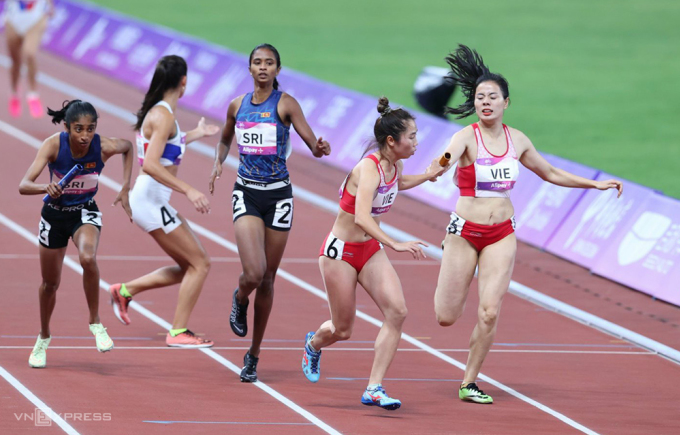
Nguyen Thi Huyen hands the baton to Nguyen Thi Hang during the women's 4x400 at the 19th Asian Games. The team finished fourth, 0.1 seconds behind their opponent Sri Lanka who won the bronze medal. Photo: Linh Huynh
- How do you evaluate the future of Vietnamese athletics?
- It must be said that we have nothing to hope for at the 2024 Paris Olympics. No athlete is qualified, so we will probably return to the previous special entry.
What I worry about is the 2025 SEA Games in Thailand, Vietnam's number one rival. They will leave us far behind. Vietnam's athletes are getting old, while there is no replacement in sight. They are still relying on Nguyen Thi Oanh and Nguyen Thi Huyen. Quach Thi Lan is currently banned from competing, I don't know how she will train or if she will be able to return.
- So what should Vietnamese athletics do?
- First of all, we must look at failure honestly. Don't flatter each other, find this reason or that reason to blame. I heard someone report that the athlete was sick so the results were not as expected. Saying that after the competition is not good. Why didn't we clearly state the athlete's health before the competition, so that if it was good, we could see the effort, and if we failed, everyone would understand that we had said it before?
Right now, we have to work clearly with athletes and require them to be professional. With older athletes like Nguyen Thi Oanh or Nguyen Thi Huyen, we have to ask them clearly if they are determined to continue competing so that we can invest. Besides their promises, leaders at all levels must also monitor and evaluate. With state money, there is no way to say we will try to compete, then go down, compete poorly and then keep it quiet, as if "no one is dead".
Leaders must also take responsibility. When I was a department head, a reporter asked me how many medals I won at the SEA Games, I told them the number. They said what if I didn't win? I said I wouldn't win, then I would resign as department head. If leaders don't dare to take responsibility, it's dangerous.
We must also be strict with athletes. When I was still working, Quach Cong Lich violated the rules, I proposed disciplinary action. The General Secretary of the Athletics Federation said, 'Why do you demand discipline at every turn? If there is discipline, who will compete?'. But, sports are like the army, discipline is strength. We are an army going to war, athletes are like soldiers, without discipline, how can we have strength? If we cover up for top athletes, what will others look up to? Each athlete must be conscious. We must be ashamed when we fail. We must know how to look straight at failure.
Leaders must also target young players in the women's 400m, women's 800m, and women's triple jump events, aged 18-19. The first filter is that they must participate in domestic competitions and achieve results.
Another concern is that current coaches teach based on experience. We need to have "captains" with expertise, constantly updating modern methods to build plans, check, supervise, and train athletes.
- One of the difficult problems of athletics is finding young talent. Do you have any solutions to change this?
- To recruit athletes from 11-12 years old, we have to go to schools and work with the "underlings" who are physical education teachers. Of course, the problem is that nowadays children mainly like football, with idols like Nguyen Quang Hai, Bui Tien Dung, Do Duy Manh... Speaking of this, we can see the weakness of image building in athletics, in other words, "branding". Even the Federation does not have this department.
I think we need to make famous athletes like beauty queens, responsible for doing charity work, promoting, reaching out to young people, and interacting. How many famous athletes in track and field come to interact with schools? Doing this will foster the love of track and field in the younger generation. Like Singapore, they know how to promote the image of Joseph Schooling and many children have learned to swim since then.
The most explosive period of athletics was after 2003 until 2007 with Nguyen Thi Hang, Bui Thi Nhung, Nguyen Duy Bang, stirring up the sports world. They made a big splash and the number of students entering sports schools increased dramatically. But later on, it created a bad image. We have 12 or 22 gold medals at the SEA Games but if we are not close to the younger generation, they will not know about us.
Mr. Duong Duc Thuy is the former head coach of the athletics team (Department of High Performance Sports I, Department of Physical Education and Sports). He won the national record in the Triple Jump (1984) and Long Jump (1985), was the first Vietnamese to jump over 7m and held this record for 10 years and was also the first Vietnamese to jump over 15m in the Triple Jump and held this record for 15 years. He was voted the best athlete five times in 1980, 1982, 1983, 1984, 1985; and was voted the best coach twice in 2007 and 2009. Mr. Thuy participated in the 1980 Moscow Olympics and the 1982 New Delhi ASIAD. In 1998 he successfully defended his doctoral thesis on athletics coaching. |
Lam Thoa
Source link


![[Photo] Nhan Dan Newspaper announces the project "Love Vietnam so much"](https://vstatic.vietnam.vn/vietnam/resource/IMAGE/2025/4/17/362f882012d3432783fc92fab1b3e980)
![[Photo] National Assembly Chairman Tran Thanh Man meets with outstanding workers in the oil and gas industry](https://vstatic.vietnam.vn/vietnam/resource/IMAGE/2025/4/17/1d0de4026b75434ab34279624db7ee4a)

![[Photo] Promoting friendship, solidarity and cooperation between the armies and people of the two countries](https://vstatic.vietnam.vn/vietnam/resource/IMAGE/2025/4/17/0c4d087864f14092aed77252590b6bae)
![[Photo] Closing of the 4th Summit of the Partnership for Green Growth and the Global Goals](https://vstatic.vietnam.vn/vietnam/resource/IMAGE/2025/4/17/c0a0df9852c84e58be0a8b939189c85a)
![[Photo] General Secretary To Lam receives French Ambassador to Vietnam Olivier Brochet](https://vstatic.vietnam.vn/vietnam/resource/IMAGE/2025/4/17/49224f0f12e84b66a73b17eb251f7278)
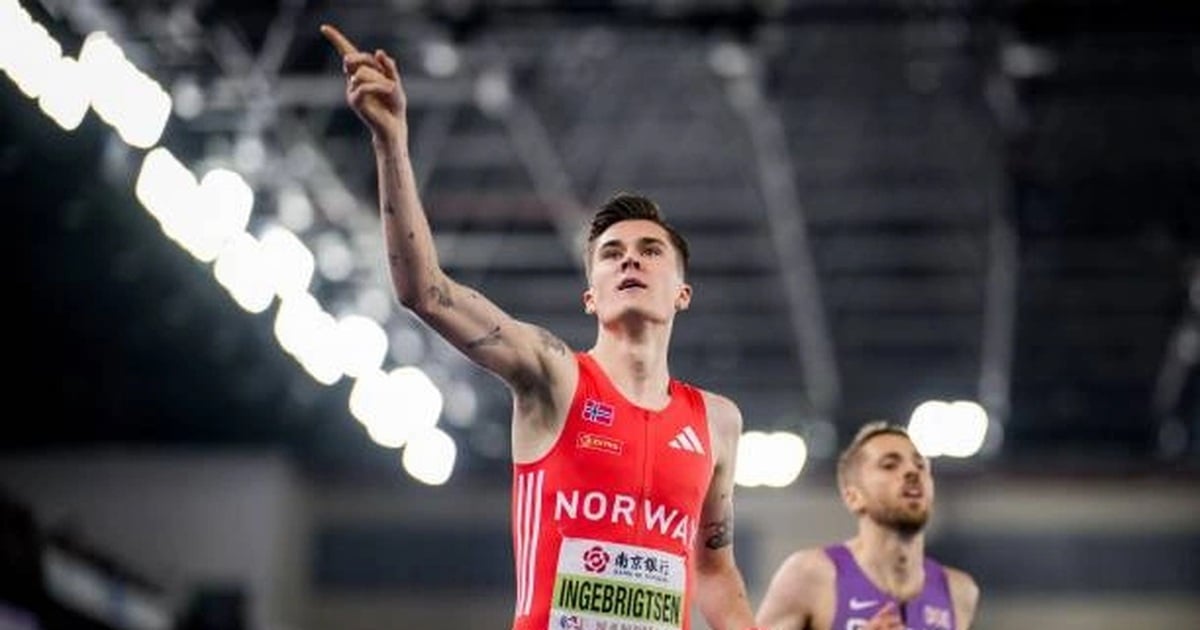

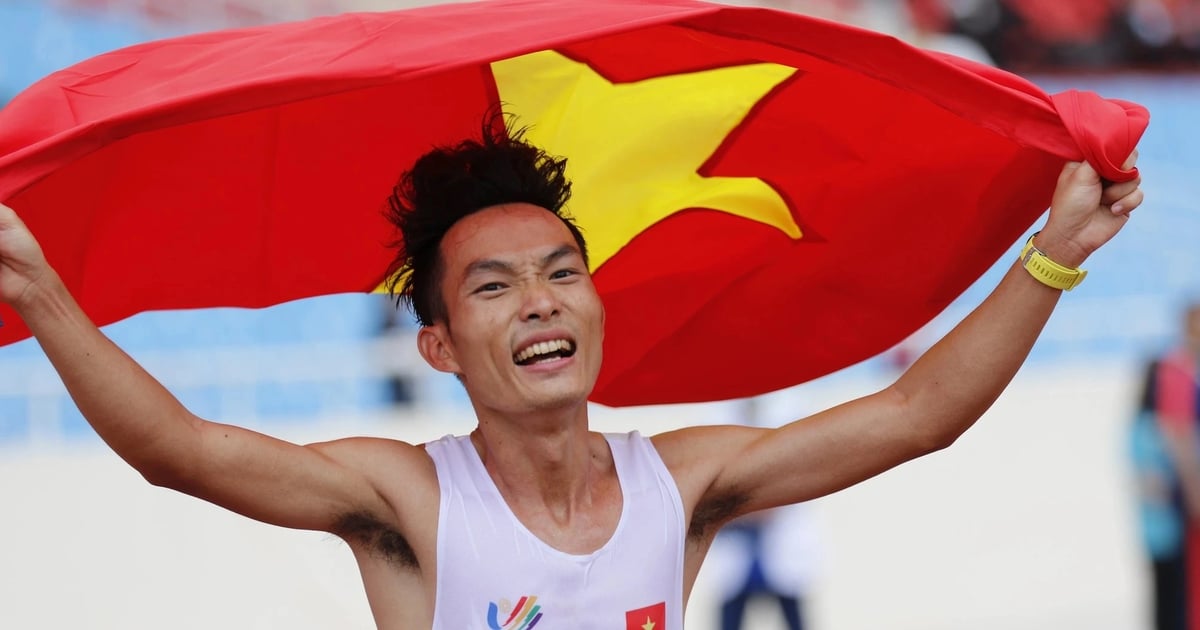

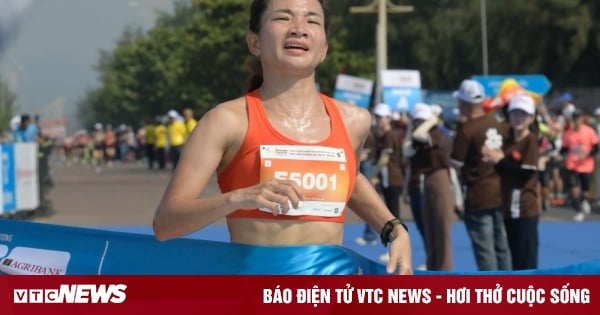

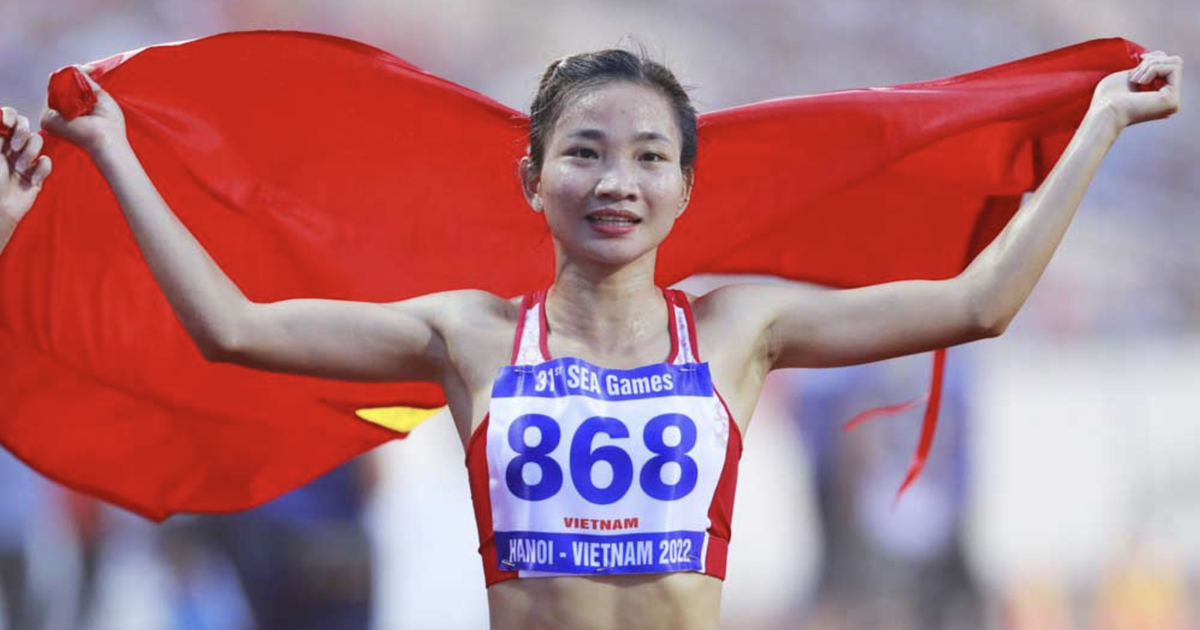


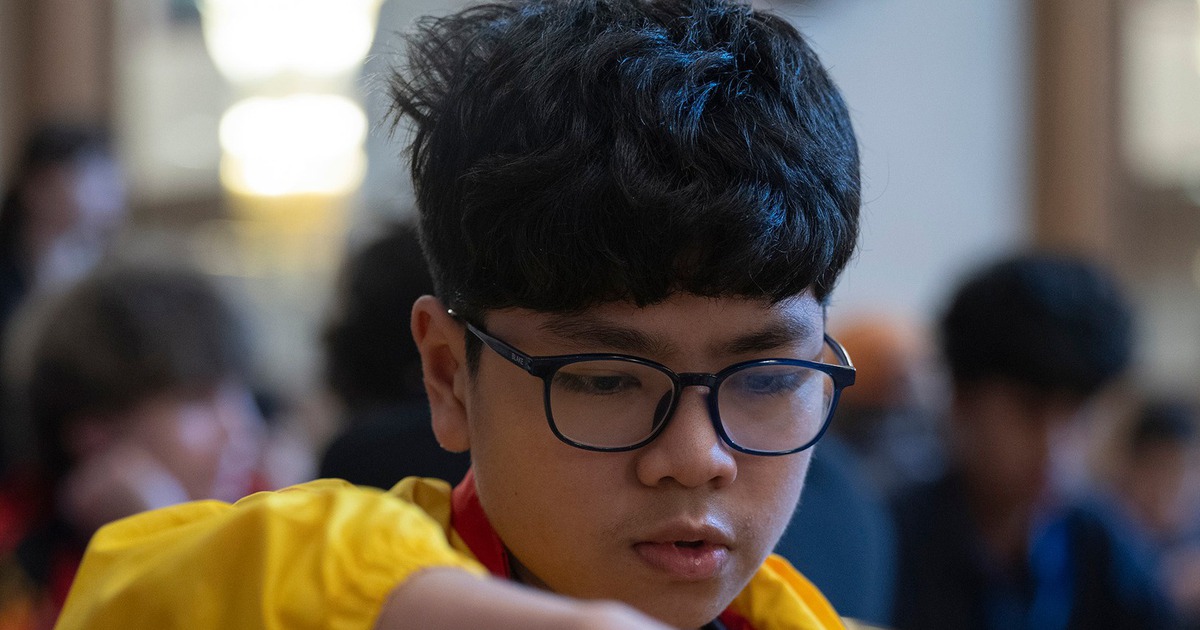















![[Photo] Welcoming ceremony for Chinese Defense Minister and delegation for friendship exchange](https://vstatic.vietnam.vn/vietnam/resource/IMAGE/2025/4/17/fadd533046594e5cacbb28de4c4d5655)



























![[Video] Viettel officially puts into operation the largest submarine optical cable line in Vietnam](https://vstatic.vietnam.vn/vietnam/resource/IMAGE/2025/4/17/f19008c6010c4a538cc422cb791ca0a1)





















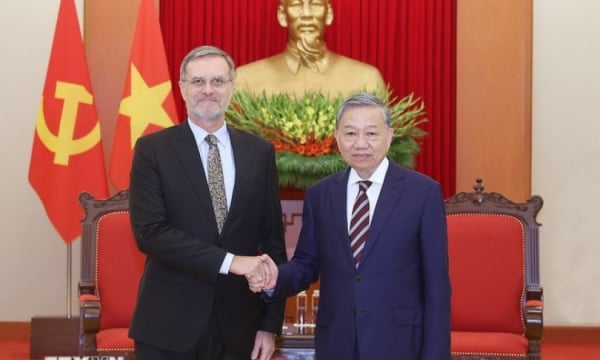


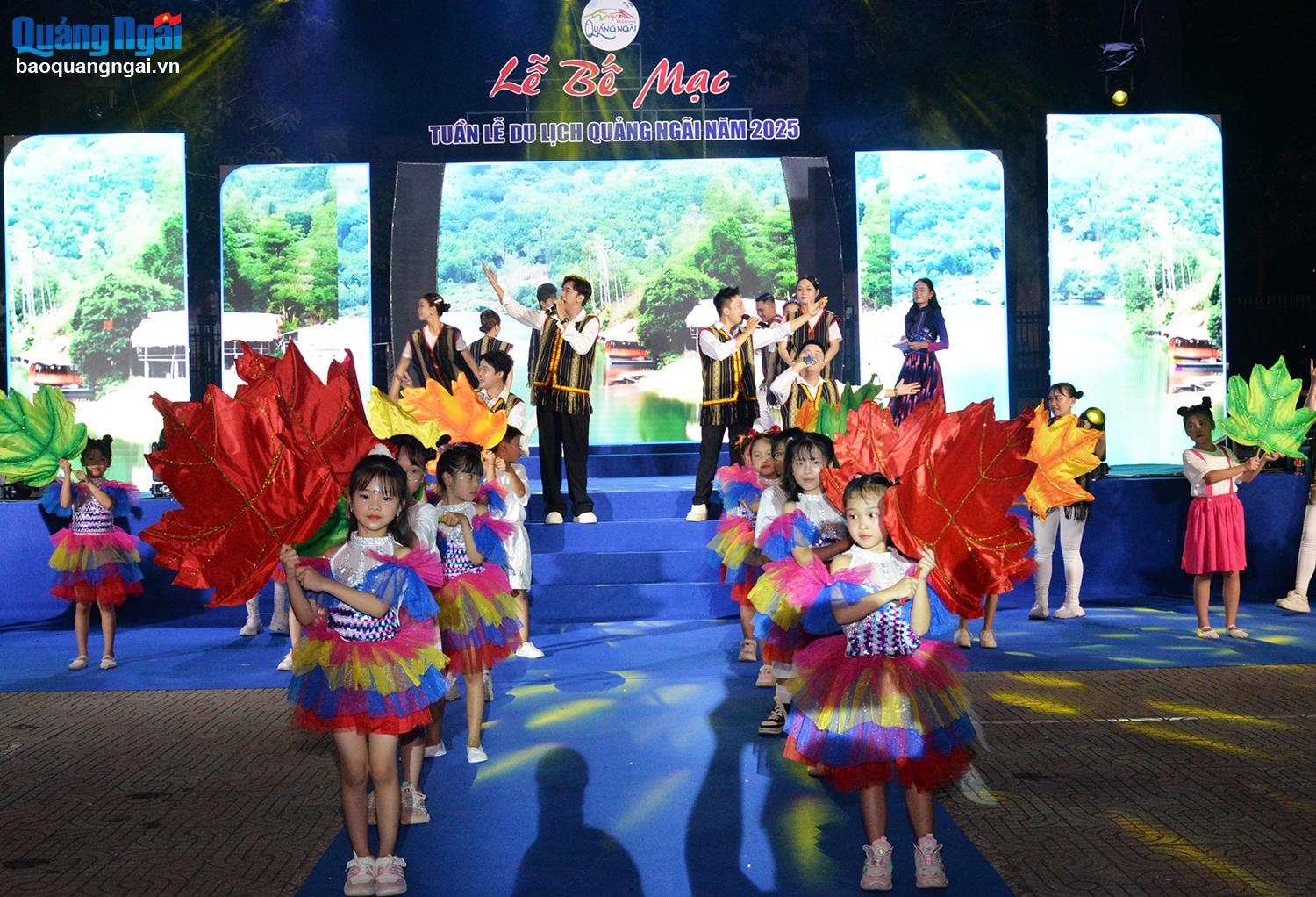

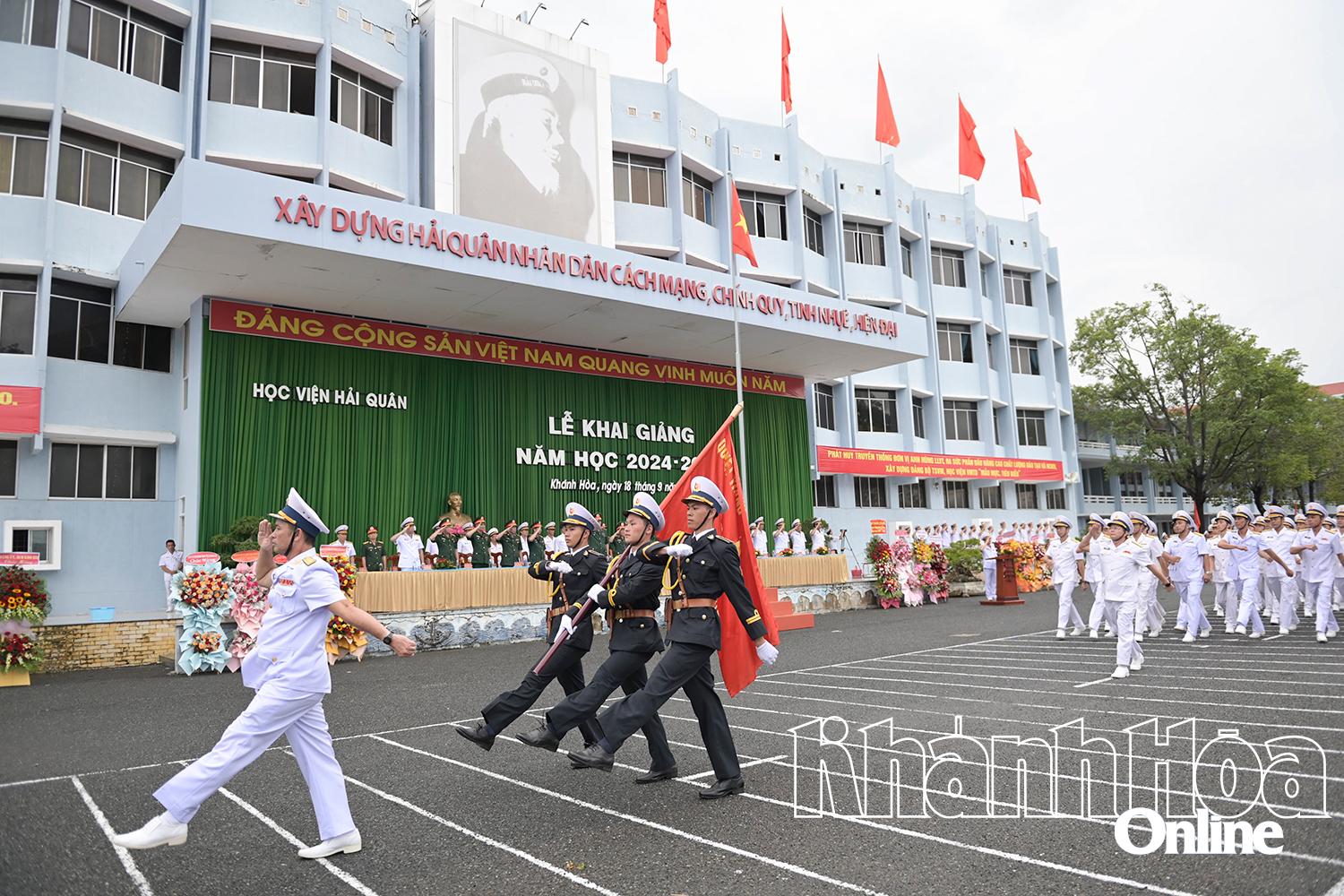












Comment (0)